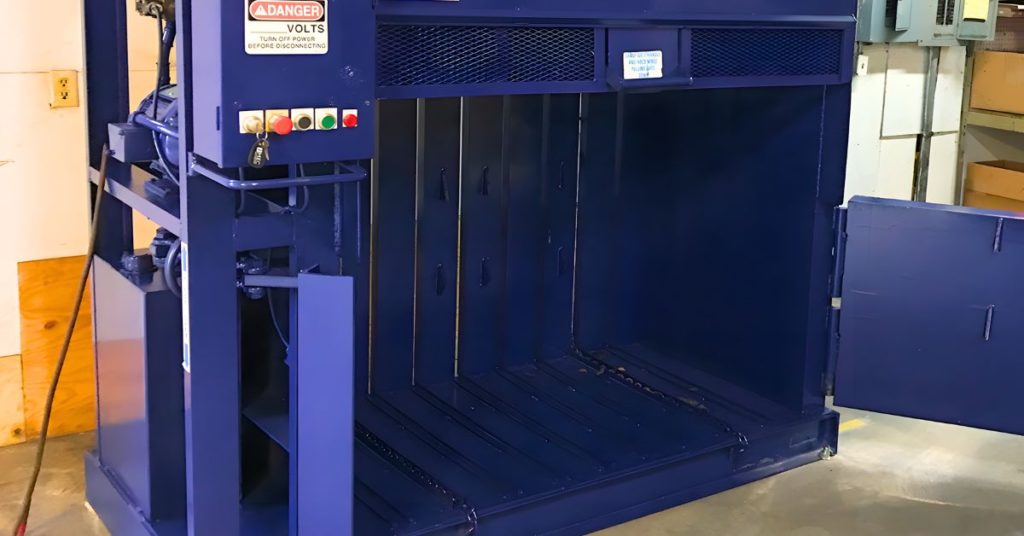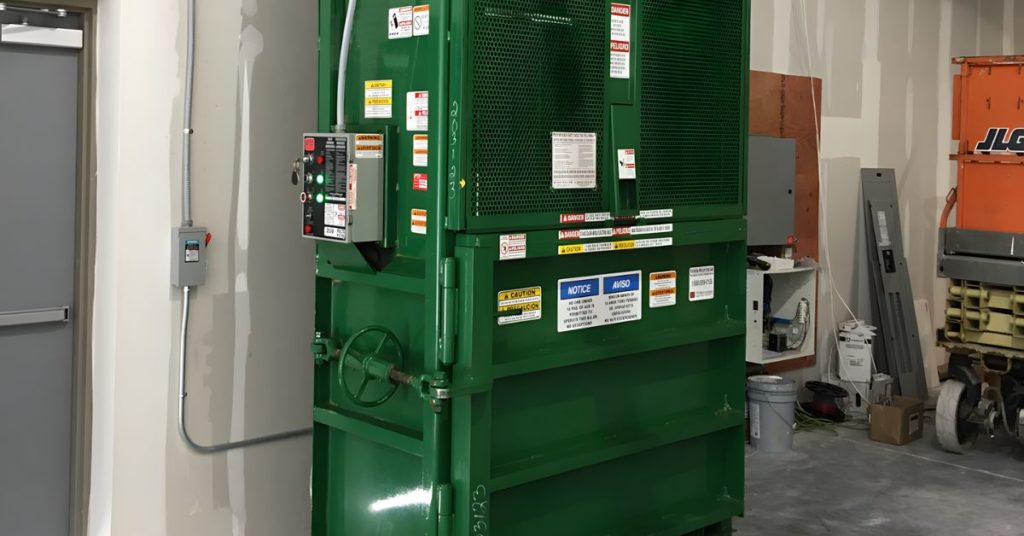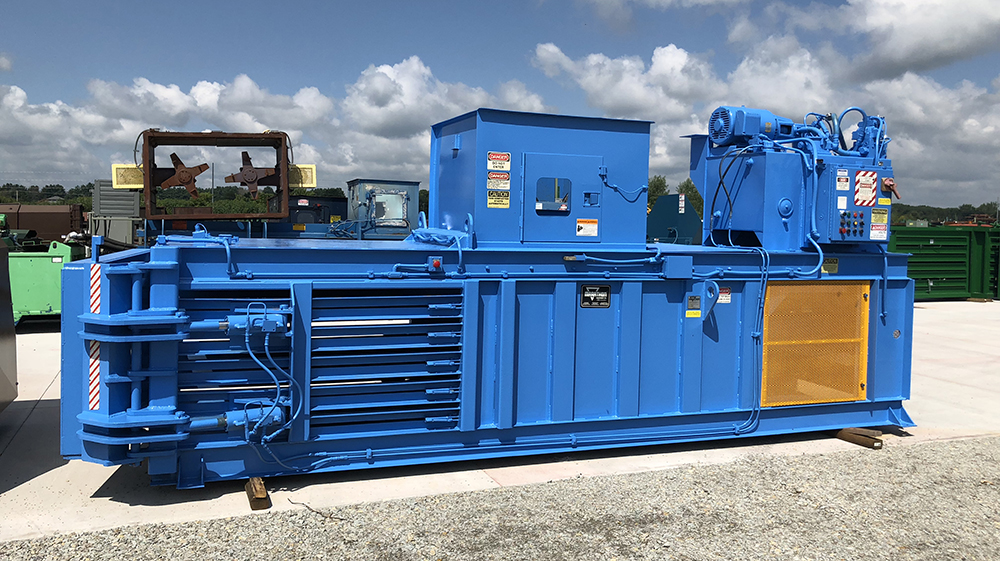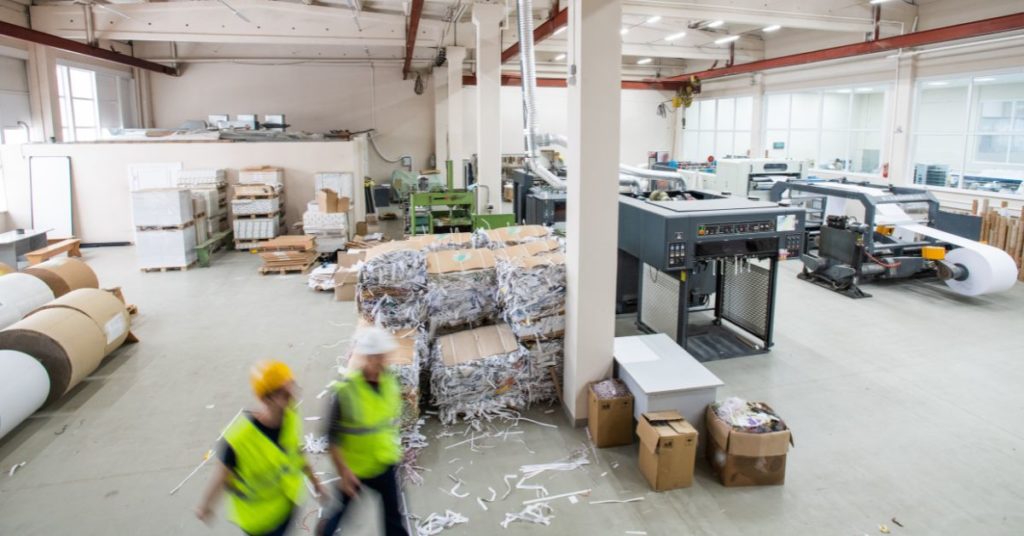Property managers and maintenance coordinators often face the challenge of choosing the right baler for their business. Navigating the numerous options can feel overwhelming. Discover how to choose the best baler for your business to simplify your decision-making process.
Understanding the Importance of Balers
Balers are powerful machines designed to compress materials like cardboard, plastic, and paper into compact bales and streamline waste management. They reduce the volume of recyclable materials, making them easier to handle and transport. By choosing the right baler, businesses can improve efficiency, cut costs, and contribute to environmental sustainability.
Balers come in different shapes and sizes, each designed for specific materials and industry needs. Familiarity with these variations helps businesses make informed decisions. The right baler will optimize waste management and boost overall productivity.
Investing in a suitable baler offers long-term benefits, including cost savings and improved operational efficiency. It will also reduce labor costs, minimize storage space, and simplify the recycling process, ultimately benefiting your business’s bottom line.
Recognizing the Main Types of Balers
Balers fall into two main categories: vertical balers and horizontal balers. Each type serves different purposes and offers unique advantages. Choosing between vertical and horizontal balers depends on factors like available space, volume of recyclable materials, and budget constraints. Evaluating these aspects will help you make a well-informed decision.
Vertical Balers
Vertical balers offer a compact, efficient solution for managing recyclable materials, and they suit businesses with limited space and moderate waste volumes. Vertical balers efficiently compress materials like cardboard and plastic into dense bales, simplifying transportation and storage.
Horizontal Balers
Horizontal balers cater to businesses generating large volumes of recyclable materials. These machines operate continuously, processing waste quickly and efficiently. Horizontal balers compress materials into tightly packed bales, streamlining storage and transportation.
These balers require ample space and a higher initial investment. However, their high throughput and efficiency make them ideal for businesses with significant waste management needs.
Consider factors like available space, waste volume, and budget when assessing the suitability of horizontal balers for your business—their potential advantages make them a valuable component of an effective waste management strategy.

Deciding Between Manual and Automatic Balers
Balers also come in both manual and automatic versions, each offering distinct benefits. When choosing between manual and automatic balers, consider factors like labor availability, budget constraints, and the volume of recyclable materials.
Manual Balers
Manual balers require human intervention to load materials, operate the machine, and tie bales. They work well for companies on the smaller side with lower volumes of recyclables, offering a cost-effective solution and hands-on control.
Automatic Balers
Automatic balers streamline the process, offering faster, more efficient operation. These machines automatically feed, compress, and tie bales, reducing labor requirements and increasing productivity. Automatic balers suit larger businesses with high volumes of waste and those seeking to optimize their recycling process.
Weighing the Pros and Cons of Baler Rentals
Baler rentals offer flexibility, allowing businesses to adapt their waste management efforts to changing needs without committing to a long-term investment. Renters like Commercial Compactor’s of America provide both horizontal and vertical baler rentals, plus access to the latest technology and minimize upfront costs. These factors make renting an attractive option for some businesses.
Additionally, renting a baler enables businesses to test different models before committing to a purchase. This approach guarantees the chosen baler meets their needs and improves waste management efforts. On the other hand, renting may involve ongoing costs and limited customization options.
Weighing the pros and cons of baler rentals will help you determine if this option aligns with your business’s waste management strategy.
Maintenance and Upkeep of Balers
Proper maintenance and upkeep of balers are essential for proper performance and longevity. Like any machinery, regular care can make a significant difference in how effectively your baler operates and how long it serves your business.
The Importance of Routine Maintenance
Routine maintenance, such as regular inspections and cleaning, helps prevent minor issues from escalating into major problems. Dust, debris, and residue from compressed materials can accumulate inside the machine, affecting its efficiency. Cleaning the baler regularly reduces the risk of jams and wear, allowing it to function smoothly.
Extending the Lifespan of Your Baler
Consistent maintenance helps extend the lifespan of your baler, protecting your investment and reducing the need for costly replacements. For example, lubricating moving parts maintains seamless operation, while checking for mechanical wear prevents unexpected breakdowns.
Efficiency Gains Through Maintenance
A well-maintained baler performs at its peak, compressing recyclables more effectively and consuming less energy. Machines that do not receive adequate care may operate inefficiently, leading to higher power consumption, slower throughput, and inconsistent bale quality. Regular upkeep streamlines waste management and supports your overall operational goals.

Analyzing Cost Considerations
Cost plays a critical role in choosing the right baler for your business. Evaluating factors like purchase price, maintenance costs, and operational expenses will reveal the most cost-effective option. While initial costs may seem daunting, investing in a quality baler provides long-term benefits, including reduced labor costs and increased efficiency.
Renting a baler offers a more affordable entry point, minimizing upfront costs and allowing businesses to scale their waste management efforts according to demand. However, ongoing rental fees may add up over time and impact overall profitability.
Weighing the cost considerations of purchasing versus renting a baler ensures you make an educated decision. Plus, a cost-effective choice enhances your waste management strategy and supports your business’s bottom line.
Evaluating Space Requirements
Space plays a significant role in selecting the right baler for your business. Vertical balers offer a compact solution, fitting well in businesses with limited space. Their small size makes them an attractive option for operations handling moderate amounts of recyclable materials.
Conversely, horizontal balers require more space but provide higher throughput and efficiency. These machines suit businesses generating significant waste volumes, offering amplified productivity and streamlined waste management processes.
Considering Material Types
Different balers cater to various material types, making it essential to consider the materials your business handles.
Vertical balers work well for compressing cardboard and plastics, offering an efficient solution for businesses with moderate waste volumes. These machines suit operations with limited space and are cost-effective options for handling recyclables.
Horizontal balers accommodate a broader range of materials, including textiles and metals. Their versatility and high throughput make them ideal for businesses generating substantial waste volumes and those seeking efficient waste processing.
Selecting the right baler for your business plays a vital role in optimizing waste management efforts. With these insights into how to choose the best baler for your business, you can make a confident, well-informed choice while ensuring long-term success and environmental responsibility.


